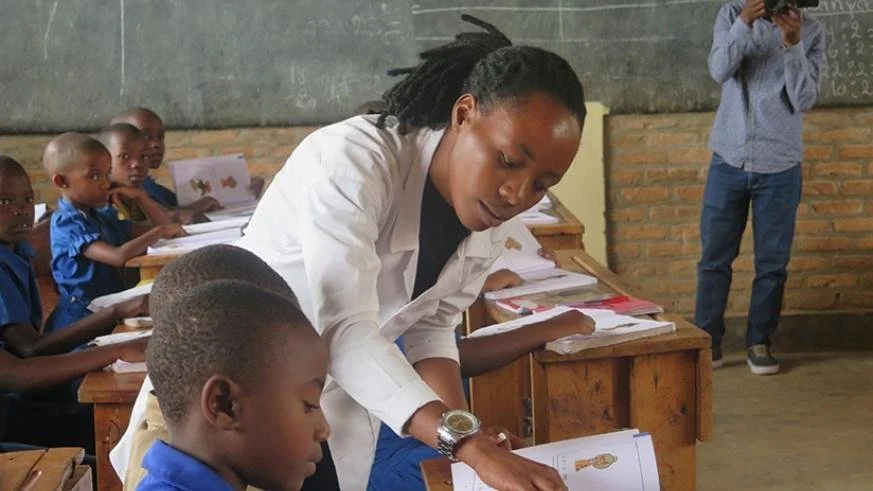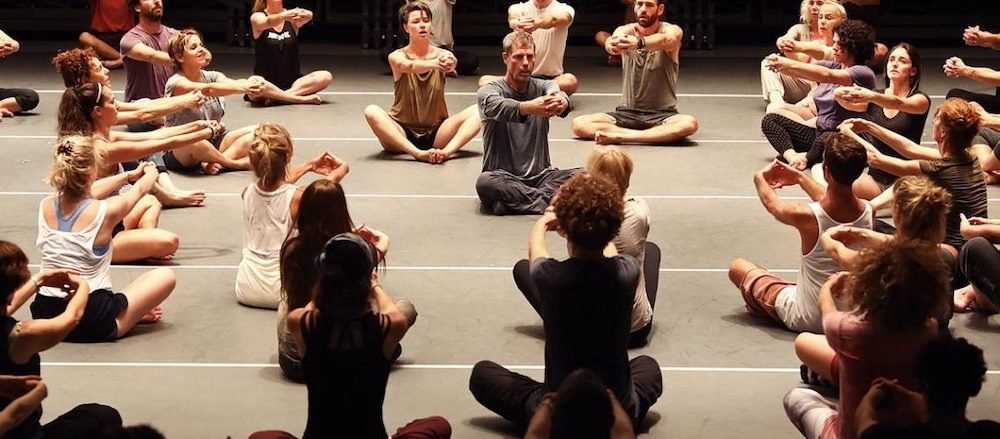The Art Of Teaching
Everyone at some point in their life has a teacher. Usually a fair few. And we all have those stories of the ‘crazy, colourful art teacher’ or ‘inspiring History teacher that wasn’t afraid to go into all the gory details of events’.
There is perhaps nothing more precious than finding that perfect role model.
So what happens when the student becomes the teacher (or ‘Master’ even)? Where does our innate urge to pass on knowledge come from? Should we ALL be teachers in some form? And, if so, how does one hope to go about it?
“The further one goes, the less one knows” (Lao Tzu).
The Minefield
The Tao reminds us (or I should say ‘warns us’) of the illusion inherent in all wisdom. Teaching is a delicate art form for this exact reason.
Ask yourself: Do you REALLY have something valuable to teach? Or would you be better off studying further, or doing nothing about it whatsoever?
My teaching journey so far has shown me the dangerousness of holding on too tightly to my supposed knowledge or set of truths. Taking a walk before and after every class helps me to clarify exactly what needs to be dropped and what else should remain, for example.
Sometimes avoiding bad habits is simply enough to teach well, providing you have some useful material of course!
Teaching, at the end of the day, is NOT about you. It’s about the students, the group, the process. The whole dynamic exchange of information, methodologies and perspectives.
But rather than worrying all about the Teacher’s minefield, let’s take a look at the way we perhaps ‘should’ be teaching, and the opportunities and learning it brings.
Teaching in any capacity can be difficult. The very nature of trying to promote positive learning experiences itself is troublesome. How much of an influence can one honestly have over another? Is there any true rulebook on how best to pass on knowledge? And should we lower our expectations of teachers and supposed experts in general?
The Art Of Teaching
3 principles to consider when taking on the role of ‘Teacher’:
1) Your ideas are not necessarily your own!
We all get our ideas, methods, skills, perspectives from somewhere. Often we pick things up unconsciously without even realising the source. A book, a film, a chat with a friend etc. Acknowledging that, as humans, we are receivers (or ‘channelers’) as well as ‘creators’ is hugely important in this respect.
This means that being a student MUST come first. To not taste your own dishes (if you were a chef) would be a huge mistake. The same goes for movement coaches, English teachers, singing coaches, you name it!
In my opinion a teacher should receive 3 direct, in-person learning experiences (classes, workshops etc) for every 1 class that he or she teaches. It’s a working model of mine for now, but one that is increasingly becoming clear.
It’s not only MUCH EASIER to teach when you have received the work of others, but it’s essential to keep yourself humble, curious and open to changing your ways over time. Nobody wants that teacher that still raves about the book or idea she first consumed 25 years ago.
Reality happens now. Every experience is a taste, an appreciation, of that reality. A true teacher is deeply aware of that and acts accordingly, learning themselves along the way.
The difficulty of ‘preparing’ as a teacher is that reality is always renewing itself in every moment. Perhaps one’s ideas and practices are meant simply to best prepare oneself to break them again and start over…? After all, students might ‘think’ they know what they want; but actually each moment calls for something that perhaps could never have been predicted and planned for.
2) Your role is minimal!
I hate to break it to you if you’re reading this as a fellow teacher, practitioner or coach of any kind, but we are really not that important. Even if you were to teach full time and see the same students regularly every week, the number of other influences (and other teachers, parents, role models etc) will far outweigh any dominant voice you might have in their lives.
We have a noble and responsible role as guides, and can profoundly effect the lives of others, but it will only ever be in small, subtle ways; seeds that are planted and perhaps will only bear fruit in many years or decades from now.
It’s important to acknowledge this for 2 reasons:
1) so our expectations of our students can be realistic and grounded; 2) so our expectations of OURSELF can also be realistic and grounded.
I personally have re-entered the Ido Portal method of physical training recently, and it’s been humbling to realise how slowly I naturally develop in certain areas (hip mobility for example), and also how much damage I do to my own spirit and enthusiasm when I force myself to progress too quickly.
A human life is a life-long journey. Any specific skill or discipline is no different. Start thinking long term and let the teaching practice reflect this… learn to be happy to make small differences to those around you every day, and stop trying to be Superman (or Superwoman) if you are finding yourself stressed, tired and self-critical too often.
Easier said than done, I know. Especially if one’s identity is heavily based on the role of teacher.
Try to remember that at the deepest level we are not ‘teachers’ or students or anything else actually. Instead, we are all human beings, trying and failing at different things daily…
Your small influence can spark profound changes long term. Just imagine the role of a farmer and how he turns the soil, plants and harvests his food year in year out. Everything with true substance and value takes time. As teachers we should approach our methods in the same way, and treat our students similarly, as living things that require careful attention and maintenance over time, as apose to spontaneous acts of inspiration only.
3) Use And Choose Your Feedback Wisely
As teachers it is normal, and to some extent inevitable, that we receive feedback from students, observers and other teachers etc. Many are quick to praise the role of feedback and its importance. However, knowing who to take feedback from and when is a delicate art, and one that should be carefully recognised.
Let’s remind ourselves that verbal feedback from others almost always implies a number of things -
A) the person giving feedback finds it necessary and timely for themselves to share it
B) their purely subjective experience is being described using a more ‘objective’ choice of words and concepts’
C) that this person feels their opinion is important and based on enough skills and/or experiences to warrant doing so
Long story short, our ideas about anothers’ work says MUCH MORE about ourselves than it does the person we’re referring to. Bearing this in mind, it’s easy to appreciate how troublesome such verbal feedback can be, and why some teachers deliberately don’t ask for feedback from certain individuals at certain times.
That being said, if one’s goal is clear, and especially if one is looking to learn specific, tangible skills from someone who has already obtained them, then conscious feedback is absolutely vital.
The rule regarding Feedback (like most things in life) is: Less Is More. One in-depth and thorough conversation with someone who you feel understands the teaching process, your goals and your area of training will serve you way better than just routinely asking students “how they found the class?” for example.
I personally try to put myself in as many high quality learning environments as I can (and those that somewhat mimic my own intentions and interests) in order to compare my own methods, habits and skills with others’. This form of direct experiential feedback I find the most effective form of feedback that there is.
Lastly, using (or avoiding) feedback should be grounded in the realisation that we are all inherently, to some extent, selfish. I teach for myself, first and foremost, and I am no different from other teachers in this respect, I believe.
If a teacher complains about his/her students, deep down they are no doubt disappointed about their own abilities, their teaching environment, the boundaries they’ve set for themselves, the lack of freedom within which they can teach, or perhaps even all of the above.
Feedback is tricky, and many unfortunately take others’ words at face value instead of putting their own experiences, practices and learning process first. Making a pragmatic schedule for one’s teaching experiences (and as a student oneself) can foster a more grounded and reliable means of improving gradually over time, as apose to relying only on advice from different human and/or technological sources.
Teaching Tricks
Here are a few take-away ‘tricks of the trade’ to help you move forward as a leader:
Find The Source - take time to identify the deepest layers of human experience; these will help you to connect with and engage students regardless of the context (eg. relationships, communication, awareness).
Put Yourself First - prioritise your own well-being BEFORE that of your students. If it sounds selfish then consider how compassionate, present and attentive you can ACTUALLY be to anyone if not feeling content in yourself. Learning starts with oneself and radiates from there. Truly, I believe, there is no other way.
Leave Your Bubble - take regular visits to other spaces, social groups and learning environments OUTSIDE of your usual zone of awareness. If you’re a yoga teacher, for example, learn dance or martial arts or tennis (anything that allows you to enter into life and learning from a different angle). Returning back to your usual world afterwards will foster immediate and sometimes unexpected results, I expect.
Did you enjoy this blog? If so, click here to support EaglesWrites…




